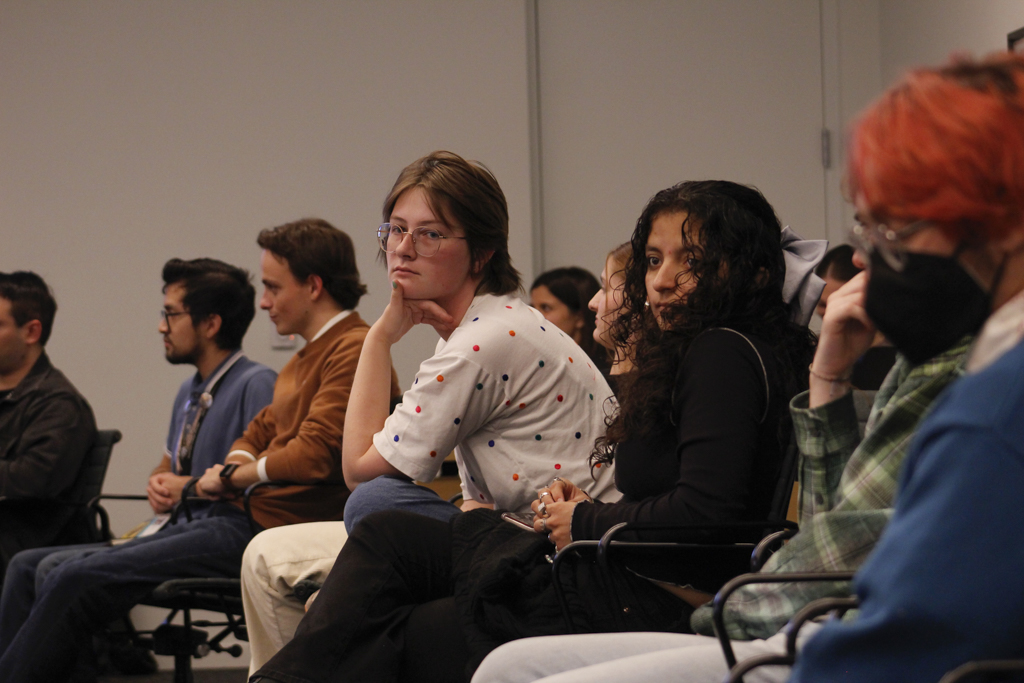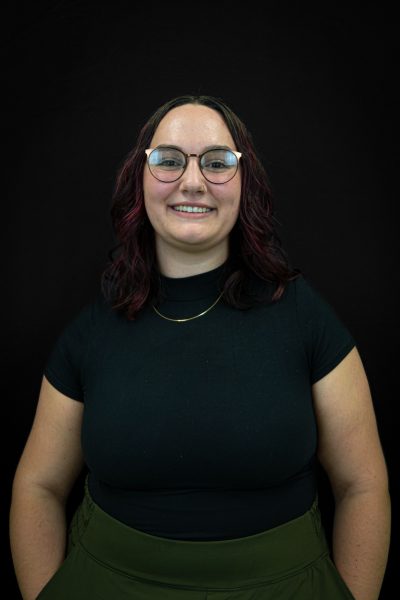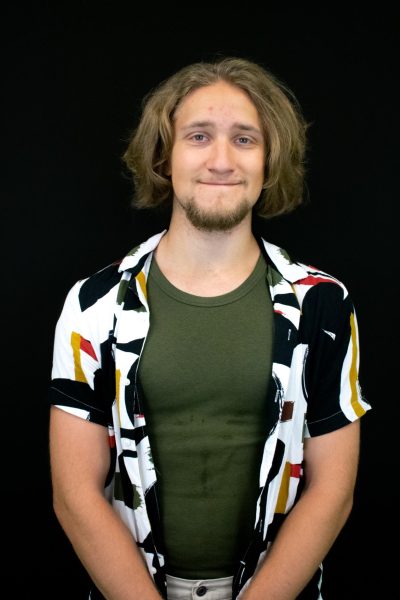Interim President and CEO Jerry Tarrer told students that his primary focus right now is to “help stabilize the college” and to “return that sense of enthusiasm and joy and excitement that I think has been a hallmark of Columbia for so many years.”
Tarrer spoke to more than 40 students who attended a “Conversation with the President” sponsored by the Student Government Association on Wednesday, Oct. 16 to discuss Columbia’s recent financial challenges.
Tarrer said he is only expected to be in the position for a year, so his “vision for the college” can’t extend into the future and has to be more focused on current problems.
He emphasized to students at the meeting what his five major focuses are, including maintaining a creative curriculum, ensuring adequate student support, handling the college’s finances, engaging with students and staff and promoting the brand.
“We’re in a very competitive environment and we want to make sure that we are reviewing our program mix and offering the best slate of academic programs not just for current students, but for future students as well,” he said.
The event was previously held around the registration period, which typically falls towards the end of the semester. SGA scheduled it earlier this year due to the number of changes made around the school, including major cuts and school restructuring.
Student Government Association Executive Vice President Amelia Lutz said that this sit-down meeting with Tarrer is similar to the annual “Let’s Chat” events they have had in recent years.
“We restructured it a little bit,” Lutz said. “It’s just a way for students to get to meet and talk to the president of the college and talk to them about some stuff that’s going on on campus.”
The mood at the meeting was tense but civil. Before it began, students said they wanted to press Tarrer on decisions the college was making to deal with the financial challenges.
When former President and CEO Kwang-Wu Kim, who Tarrer replaced, last talked to students in the “Let’s Chat” forum on Zoom in the Fall of 2023, it was a starkly different setting, as the Chronicle previously reported. At that time, the college was three weeks into what would eventually become a seven-week historic strike by the part-time faculty union. Students were angry and upset.
The meeting this time was held in person with open, circular seating to emphasize a casual environment. There were no microphones used, allowing students to openly engage in conversation without the pressure or formality of being put on the spot.
Lutz said that the only structured time was for introductions, allowing students to ask questions in order to take full advantage of the hour and a half event. The beginning of the conversation was largely focused on getting to know Tarrer and his aspirations as interim president.
“There’s going to be a lot of change, and a lot of it sounds super scary to a lot of people,” Lutz said. “A lot of these terms are being put very business-y, and so this is a way for students to ask for clarification or for input about what other changes are going to be made, or past changes that have been made that they don’t quite understand the thought process behind it.”
Lutz hoped that this opportunity to speak with the president would give the students a chance to hear about the emails being sent to them by the college broken down in more understandable terms.
When asked about a way to save possible programs from being cut:
The college plans to eliminate roughly 18 of its 58 majors to streamline the program offerings. The undergraduate programs on the list to be cut include ASL-English interpretation, creative writing, art history, cultural studies and the new environmental and sustainability studies majors, as the Chronicle previously reported.
Senior Vice President and Provost Marcella David said that the ASL interpretation program took a hard hit from COVID-19, impacting enrollment.
“Today, the number of students outside of minors, the number of students who are in ASL, is not enough to sustain the program,” David said.
However, she added that they might be able to continue offering ASL as a minor.
“That minor might lead to certain positive outcomes; it might lead to students continuing on and getting their certification through other means, but it won’t be the same thing, and I acknowledge that,” David said. “These are hard problems, and hard problems mean that you have to take on solutions that are going to be complex. And some of those solutions are things that we’re guessing.”
Tarrer explained that, in any case, there have to be enough current and prospective degree-seeking students in a particular program or major for them to be retained.
When asked if budget cuts, sunsetting majors and reducing staff and faculty is enough to fix Columbia’s financial problems:
“On an ongoing basis if there’s not substantial enrollment, we may have to cancel a class. That’s something that goes on at every institution of higher ed,” Tarrer said. “We are undergoing a process of reviewing our program mix. That is something that is, again, normal.”
Tarrer said that they have accelerated the review process “one, because it’s long overdue, and two, because the world is changing.”
He assured the students that no programs were cut for this fall and there are currently no plans to cut any programs from this spring semester.
The college has said students who are currently enrolled will be able to complete their degrees, but for programs that are being eliminated, no new students will be accepted into them.
When asked if there were any plans to involve students in the decision making process as programs continue to be evaluated:
Tarrer proceeded to pass the question on to the provost, saying she was leading this aspect of the work. David said that although she is leading it, “that’s not really something that I’m in a position to mandate.”
“There are eight schools, and each of the eight schools are approaching things in a slightly different way.”
Lutz hoped that hearing Tarrer break down students’ questions and address them “dissipates some of that fear and anxiety amongst the student body.”
Copy edited by Trinity Balboa











